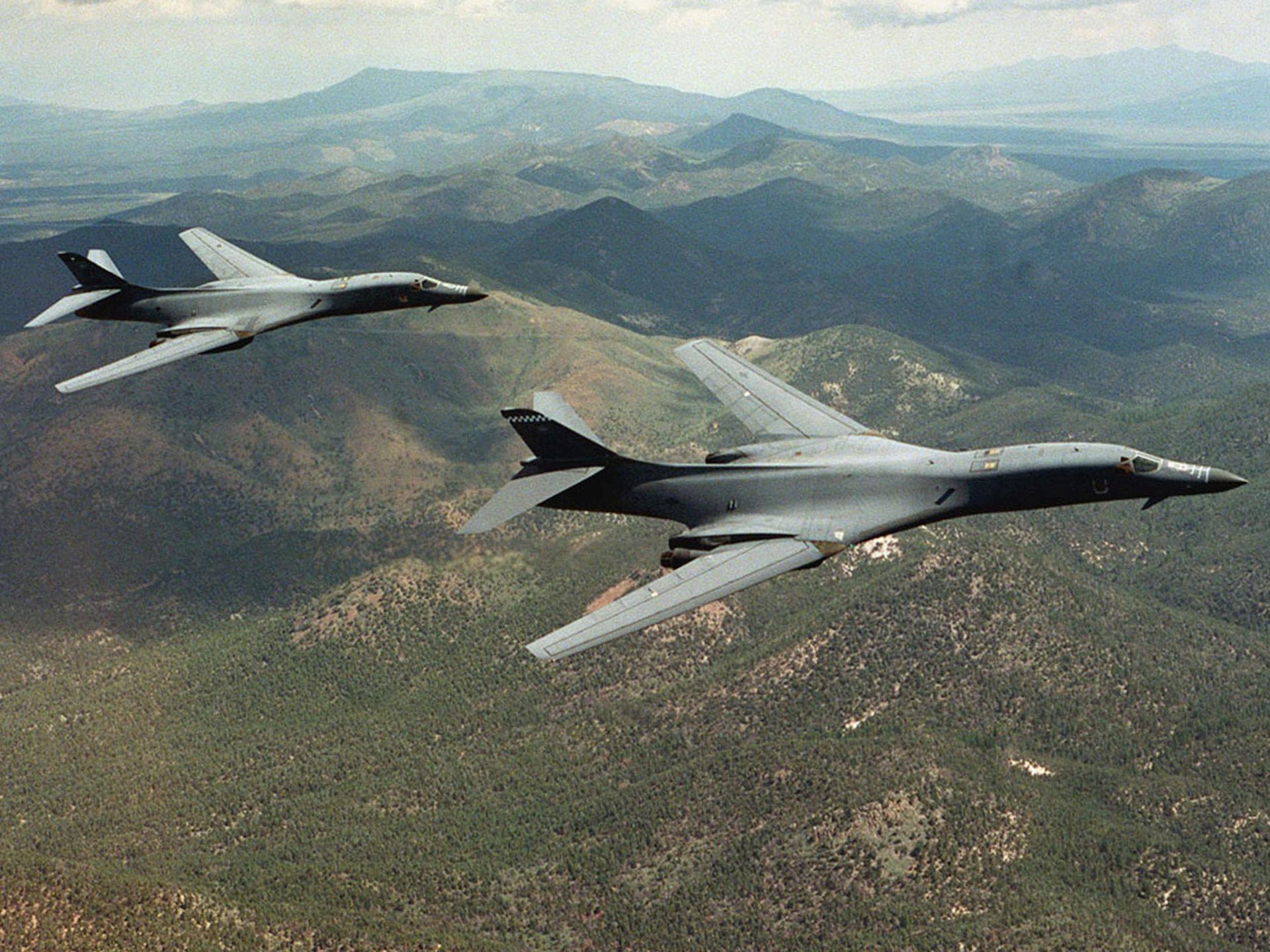US flies bombers over Korean Peninsula in show of force as Donald Trump discusses strategy with defence chiefs
President meets with Secretary of Defence General James Mattis to plan best approach to rogue state's growing nuclear threat

Your support helps us to tell the story
From reproductive rights to climate change to Big Tech, The Independent is on the ground when the story is developing. Whether it's investigating the financials of Elon Musk's pro-Trump PAC or producing our latest documentary, 'The A Word', which shines a light on the American women fighting for reproductive rights, we know how important it is to parse out the facts from the messaging.
At such a critical moment in US history, we need reporters on the ground. Your donation allows us to keep sending journalists to speak to both sides of the story.
The Independent is trusted by Americans across the entire political spectrum. And unlike many other quality news outlets, we choose not to lock Americans out of our reporting and analysis with paywalls. We believe quality journalism should be available to everyone, paid for by those who can afford it.
Your support makes all the difference.The US military flew two strategic bombers over the Korean Peninsula in a show of force late on Tuesday, as President Donald Trump met top defence officials to discuss how to respond to any threat from North Korea.
Tensions have soared between the United States and North Korea following a series of weapons tests by Pyongyang and a string of increasingly bellicose exchanges between Trump and North Korean leader Kim Jong-un.
North Korea has launched two missiles over Japan and conducted its sixth nuclear test in recent weeks as it fast advances towards its goal of developing a nuclear-tipped missile capable of hitting the US mainland.
The two US Air Force B-1B bombers were joined by two F-15K fighters from the South Korean military after leaving their base in Guam, South Korea's Joint Chiefs of Staff said in a statement on Wednesday.
After entering South Korean airspace, the two bombers carried out air-to-ground missile drills in waters off the east coast of South Korea, then flew over the South to waters between it and China to repeat the drill, the release said.
The US military said in a separate statement it conducted drills with Japanese fighters after the exercise with South Korea, making it the first time US bombers have conducted training with fighters from both Japan and South Korea at night.
The US bombers had taken off from the Andersen Air Force Base in Guam. In August, Pyongyang threatened to fire intermediate-range missiles towards the vicinity of Guam, a US Pacific territory that is frequently subjected to sabre-rattling from the North.
South Korean and US government officials have been raising their guard against more North Korean provocations with the approach of the 72nd anniversary of the founding of North Korea's ruling party, which fell on Tuesday.
Trump hosted a discussion on Tuesday on options to respond to any North Korean aggression or, if necessary, to prevent Pyongyang from threatening the United States and its allies with nuclear weapons, the White House said in a statement.
Trump was briefed by Secretary of Defence James Mattis and Chairman of the Joint Chiefs of Staff General Joseph Dunford at a national security team meeting, the statement said.
US and South Korean wartime operational plans, including a plan to wipe out the North Korean leadership, were stolen by North Korean hackers last year, a South Korean ruling party lawmaker said on Wednesday.
Some 235 gigabytes of military documents were taken from South Korea's Defence Integrated Data Centre in September last year, Democratic Party representative Rhee Cheol-hee said in radio appearances on Wednesday, citing information from unidentified South Korean defence officials.
In May, an investigative team inside the defence ministry announced the hack had been carried out by North Korea, but did not disclose what kind of information had been taken.
The United Nations Security Council, which has imposed a series of ever tighter sanctions on North Korea, has banned four ships from ports globally for carrying coal from North Korea, including one vessel that also had ammunition.
The vessels are the first to be designated under stepped-up sanctions imposed on North Korea by the 15-member council in August and September over two long-range ballistic missile launches and Pyongyang's sixth and largest nuclear test.
China, North Korea's main ally and trading partner, has consistently argued sanctions alone will not work, urging Washington and Pyongyang to lower their rhetoric and return to the negotiating table.
China's influential Global Times tabloid expressed alarm at how far the rhetoric on both sides had gone and how it had increased the risk of a “fatal misjudgment”.
“The international community won't accept North Korea as a nuclear power. North Korea needs time and proof to believe that abandoning its nuclear programme will contribute to its own political and economic advantage. This positive process is worth a try,” the paper said in an editorial late on Tuesday.
“War would be a nightmare for the Korean Peninsula and surrounding regions. We strongly urge North Korea and the US to stop their bellicose posturing and seriously think about a peaceful solution,” it said.
Reuters
Join our commenting forum
Join thought-provoking conversations, follow other Independent readers and see their replies
Comments